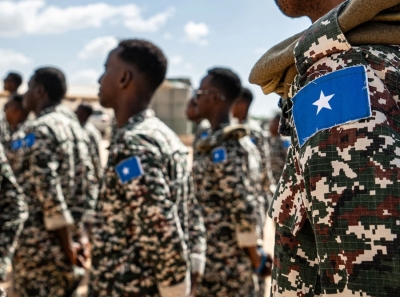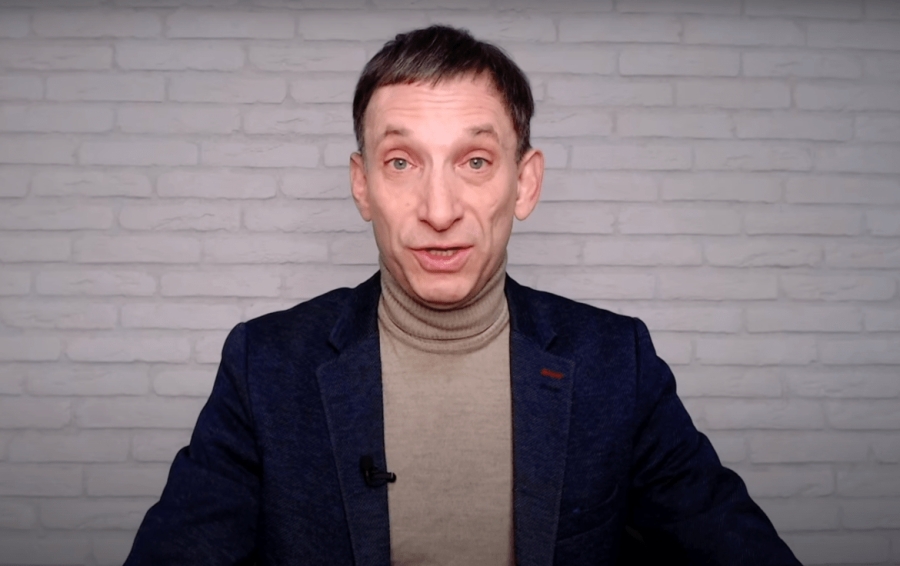Recent reports from Iranian media have highlighted new threats posed by the terrorist organisation Islamic State (ISIS) towards Russia, specifically targeting President Vladimir Putin.
According to these reports, ISIS militants, following their recent terrorist act in the Moscow region, have issued fresh warnings aimed at Russia and its leader.

Iranian media have disclosed the circulation of posters allegedly from Islamic State Khorasan (IS-K), containing threats of retaliation against Russia for the torture inflicted upon members of the terrorist group.
These warnings suggest that ISIS may not limit its actions to a single terrorist incident within Russia.
Prior to this development, Western intelligence agencies, including those of the United States and the United Kingdom, had issued alerts regarding potential terrorist activities, which were seemingly disregarded by the Russian leadership.
President Putin, in a speech preceding the terrorist act in Crocus City, dismissed these warnings as attempts by Western nations to install panic among Russian citizens.
It is evident that either the Russian special services failed to prevent this significant terrorist incident, or they deliberately allowed it to occur, perhaps with the aim of shifting blame onto other entities, notably Ukraine.
This narrative was initially echoed by Russian officials and propagandists in the immediate aftermath of the attack.
President Putin, in his address to the nation, referred to a supposed incident along the Russian-Ukrainian border, despite the fact that the perpetrators of the terrorist act in the Moscow region were apprehended near the Russian-Belarusian border, not the Russian-Ukrainian border.
Furthermore, the Ukrainian connection was swiftly debunked by American institutions, which reaffirmed their prior warnings to Moscow and claimed to possess knowledge regarding the orchestrators of the attack.
The question arises as to why ISIS has chosen this moment to destabilise the situation in the Russian Federation and commence attacks.
This timing coincides with various domestic and international challenges facing Russia, including economic pressures, regional conflicts, and diplomatic tensions.
Terrorist acts within a nation’s borders often prompt questions about their motives and targets. In this case, it is relatively straightforward to discern the rationale, as terrorists typically select targets they perceive as vulnerable.
Vladimir Putin seemed to adhere to this logic when deciding to attack our country (Ukraine).
It is now apparent that Putin believed Ukrainian state institutions to be severely weakened and that Ukraine’s armed forces would not respond to aggression, expecting the West to acquiesce to his plan of installing a puppet government in Kyiv.
Hence, Russia’s attack on Ukraine in 2022.
ISIS may be operating under a similar terrorist logic to Russia’s. The Russian state, weakened by the war with Ukraine, sees its intelligence agencies struggling to effectively combat terrorism.
Much of their recent efforts have been directed towards Ukraine and suppressing domestic dissent. We’ve witnessed Russia’s endeavours to poison and discredit individuals and to foment destabilisation in neighbouring states.
Moreover, Russian special service agents were observed in Ukrainian territory, including Crimea, preparing for occupation and annexation.
In such circumstances, it’s challenging to imagine Russian special services effectively combating real terrorist threats.
Despite Russia’s involvement in Syria and support for regimes like Bashar al-Assad’s and the Taliban, it remains a destabilising force in the global fight against radical Islamist movements.
The attack on Russia, and potentially on President Putin personally, aligns with the strategic goals of Islamist countries.
They recognise that Russia’s intelligence services are now a more formidable adversary to NATO’s and other Western countries’ intelligence agencies in countering Islamist extremism.
Vladimir Putin’s response to preemptive warnings from Western intelligence services can only be described as inadequate, if not outright dismissive.
Despite clear indications of potential terrorist acts being planned within Moscow, both publicly and privately, the Kremlin’s reaction has been far from satisfactory.
Warnings from both American and British embassies about the possibility of terrorist attacks during mass gatherings, such as concerts, were met with little heed in Moscow.
While the transparency of these warnings may seem evident, there exists a notable lack of trust and collaboration in this situation.
It’s evident that American and other Western intelligence services are hesitant to share confidential information with Russia’s Federal Security Service (FSB) and Foreign Intelligence Service (SVR).
This reluctance stems from the current strained relations between Russia and the West, with each side viewing the other as a potential adversary.
The attack on Russia, including the potential targeting of President Putin himself, aligns with the strategic objectives of Islamist intelligence agencies.
They recognise the FSB and SVR as formidable opponents in the ongoing intelligence battle, far surpassing the capabilities of their Western counterparts.
Embassies of the United States and the United Kingdom issued warnings to their citizens based on the understanding that Russia lacks the capacity to effectively counter this significant threat.
This underscores the need for Russia’s leadership to acknowledge the severity of the danger facing its citizens and the state.
Despite the clear and present danger posed by potential terrorist attacks, Russia’s leadership has failed to draw any meaningful conclusions or take appropriate action to protect its citizens.
Instead, the focus remains primarily on the conflict with Ukraine, despite Ukraine posing no real terrorist threat to Russia.
This unwillingness to confront the real danger at hand not only imperils the Putin regime but also endangers the Russian people, who unwittingly find themselves caught in the crosshairs of global terrorism.
Follow Vitaly Portnikov’s You Tube channel at: https://www.youtube.com/@portnikov
Click here for more News & Current Affairs at EU Today
_____________________________________________________________________________________________________________

Follow EU Today on social media:
Twitter: @EU_today
@EU_sports
Facebook: https://www.facebook.com/EUtoday.net/
https://www.facebook.com/groups/968799359934046
YouTube: https://www.youtube.com/@eutoday1049







